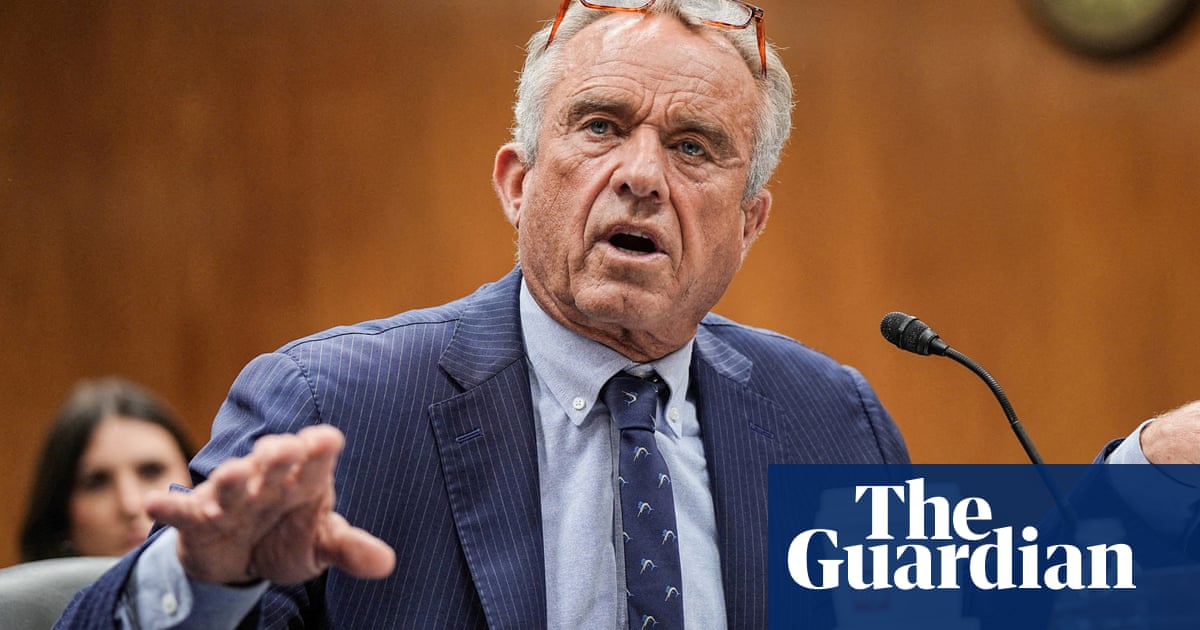Two Democratic senators are demanding to know how a company that administers government benefits could profit from Republican-led cuts to Medicaid, the public health insurance program for people who are low-income, elderly and disabled.
Senators Elizabeth Warren and Ron Wyden sent the letter to Maximus, Inc on Monday. The company is the largest private contractor to states who seek to outsource their administration of government assistance, including health insurance and food aid.
“Maximus’s long history of kicking Americans off of Medicaid to boost their profits should be a warning of what’s to come if Republicans pass their ‘big beautiful bill,’” Warren told the Guardian in an exclusive comment.
“We need to hold Maximus accountable for padding their bottom line by making Americans suffer.”
Maximus is a publicly traded company with a market capitalization of $3.9bn. It is the largest company in an industry that helps states privatize administrative obligations in programs that serve the poorest residents – a phenomenon one media outlet described as the “welfare-to-work industrial complex”.
Warren and Wyden wrote that the company, “has an abysmal track record, with reports of egregious backlogs and service delays and several reported instances of fraud”.
In states where it’s hired, Maximus determines whether needy Americans qualify for a wide range of public assistance – from Medicaid to “food stamps”, formally called the Supplemental Nutrition Assistance Program (Snap) to “welfare”, or Temporary Assistance for Needy Families (TANF), according to the letter.
Warren and Wyden’s letter comes as congressional Republicans seek to add red tape to government-run health insurance programs, including proposed historic cuts to Medicaid, the public health insurance program that covers roughly 71 million Americans who are low-income, disabled and elderly.
In addition to Trump administration-led rule changes to other government health insurance programs, the non-partisan congressional budget office estimates Republican-led efforts could lead 16 million Americans to lose insurance by 2034.
In a statement, Maximus told the Guardian: “The accusations contained in the letter Maximus received this morning are baseless. The truth is Maximus has been recognized for its high quality service connecting individuals with critical health coverage.”
“Maximus prides itself on being a conflict-free and accountable partner to government,” the statement continued. “We do not set policy, rather we deliver on policies enacted by members of both political parties by developing and deploying technology to rapidly fix problems in legacy government systems and deliver the right services to the right people at the right time.”
Maximus has spent more than $2m lobbying the federal government since 2024, and said in an investor update that its objectives “align” with the cost-cutting by billionaire Elon Musk’s unofficial “department of government efficiency” (Doge).
“Our teams are well prepared for this moment as the DOGE objectives align with many of our recent Maximus Forward initiatives,” the Maximus CEO Bruce Caswell told investors on the call, according to a transcript.
He later added: “A reduction in Medicaid recipients may not necessarily decrease consumer engagement, especially if eligibility verification or activity reporting requirements become more frequent than today. Additionally, in many of our largest states, we also manage state-based exchanges” – referring to individual insurance marketplaces colloquially called Obamacare exchanges – “where customers can enroll if they no longer are eligible for Medicaid. This helps maintain our ongoing engagement with those consumers.”
The senators also noted that in late 2022 and 2023, when states were going through a post-pandemic Medicaid “determination” process – or reexamining whether beneficiaries were still eligible for the program – “your company’s stock price jumped almost 50% on the news”.
“With millions of dollars spent on lobbyists in Washington and around the nation, you have worked to enact the largest Medicaid cuts in the program’s history – and ensure that your company and you personally will financially benefit,” Warren and Wyden wrote.
A central tenet of Republican’s plan to cut Medicaid is to force states to add more bureaucracy to the program, including “work requirements” in the form of documentation from beneficiaries. The overwhelming majority of Medicaid beneficiaries either already work or would be eligible for exemptions to the requirement, but would be at-risk of losing insurance because of the added red tape.
All those added documentation requirements need to be administered by states. Already, Warren and Wyden said, Republicans have set aside $100m in their proposed bill, the “one big, beautiful bill”.
However, they said that is likely an “undercount” of what is necessary to administer the new programs, and that states would need hundreds of millions more dollars to implement new work requirements and changes to food assistance programs.

 German (DE)
German (DE)  English (US)
English (US)  Spanish (ES)
Spanish (ES)  French (FR)
French (FR)  Hindi (IN)
Hindi (IN)  Italian (IT)
Italian (IT)  Russian (RU)
Russian (RU)  3 hours ago
3 hours ago
























Comments